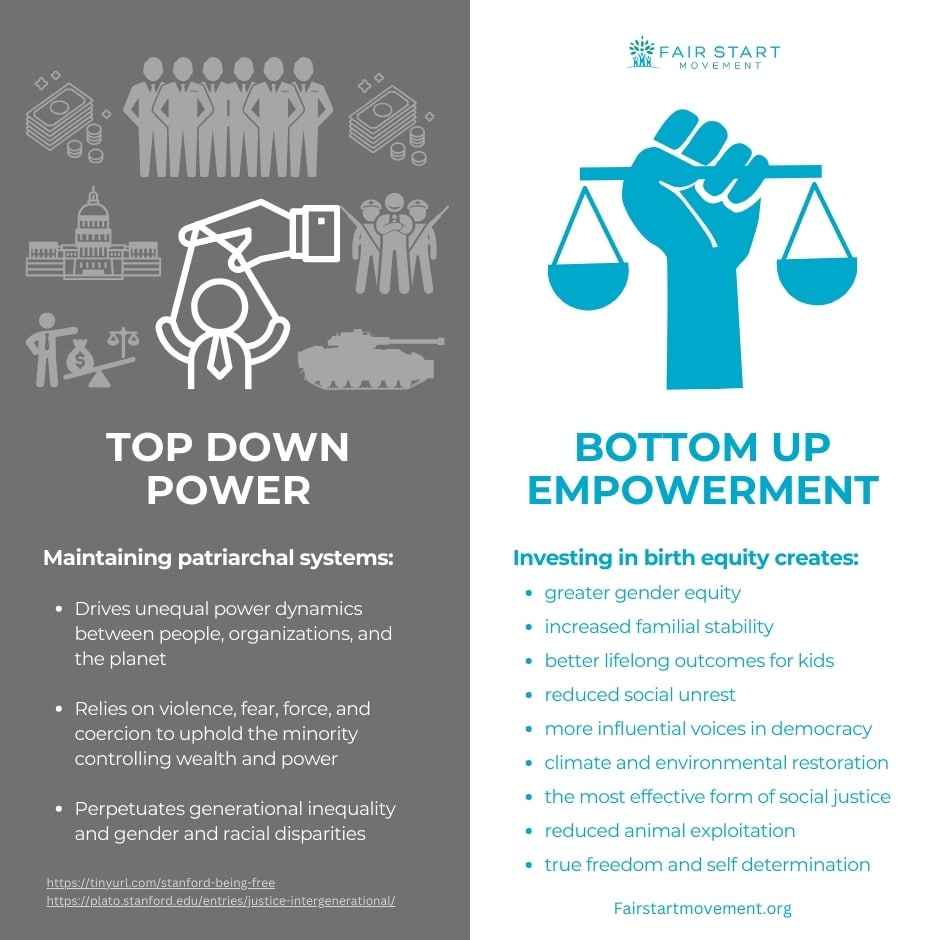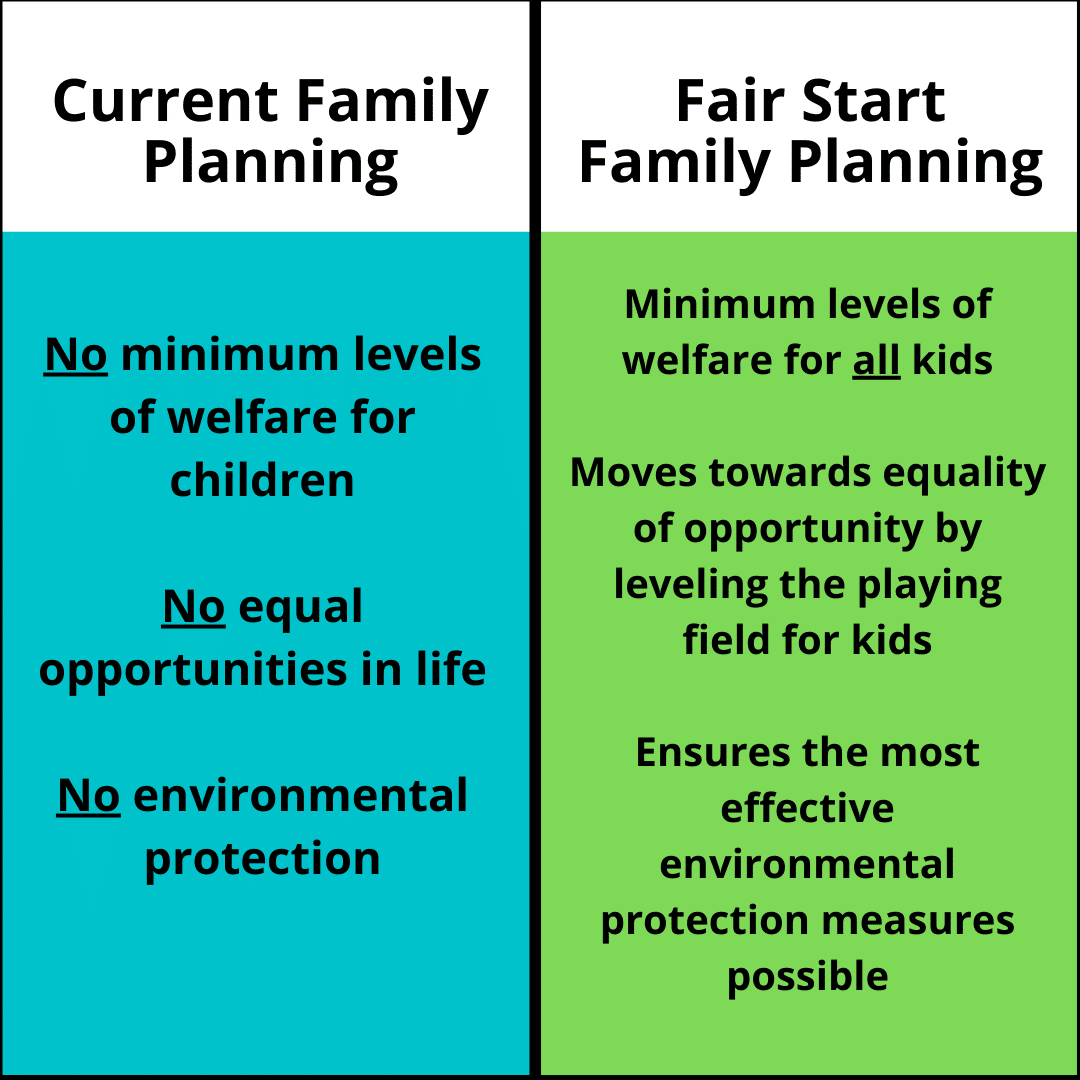Do you believe children deserve a fair start in life? Prioritizing that is the most effective way to ensure a better world.
The idea of an equity override is about putting fairness at the center when the strict letter of the law falls short. At the World Court hearing where climate change was described as an “urgent and existential threat, ”an equity override would allow the Court to look beyond technical legalities and focus on what is right and just, especially for those most affected.
This approach would empower the Court to prioritize justice over rigid legal formalism, reinforcing demands like those of Fair Start: that historical emitters must take the lead in mitigation and support. Equity overrides shifts the conversation from narrow legal obligations to broader moral responsibilities, centering principles like climate finance, loss and damage reparations, and Fair Start development pathways.
(For information on Fair Star’s planned research in the context of vulnerability theory, read more here).
For the Global South, this isn’t just about legal recognition–it’s about survival, dignity, and the right to a future shaped by justice rather than inherited crisis.

The Problem: Equitywashing and the Legacy of Power
Any value or impact claim made today is likely out of context because it ignores the radically unequal conditions children face at birth. This goes beyond greenwashing to a more fundamental or first order problem – equitywashing: the hiding of illegitimate, inequitable, and birth-based power relations that ensure defining standards like “green” in a way that enriches some at deadly cost others, and causes the climate crisis.
Equitywashing stems from the historic subversion of racial and social justice movements in the Twentieth Century through policies that privatized family planning and thus the fundamental creation of power relations, rather than making the process equitable or empowering. This sleight of hand and power grab enabled wealthy families and governments to assume authority and and entitlements without legitimacy. They redefined the idea of freedom from power as freedom from the coercion of the state rather than the ability to consent to any influence of others, and using unsustainable and inequitable reproductive rights standards designed to enrich some children at deadly cost to others. The move ensured most people would assume freedom was the absence of government coercion, when that power actually originated in the creation of birth and development positionality/power relations
Those policies led to systems of subjective valuation that hid impacts on objective values like infant health and equity, and ensured the world overshot key thresholds within less than a few generations leading to the climate and political crises we see today. Overshoot was thus essentially the illegal shifting of power.
The standards took the idea of bodily autonomy outside of one’s political equity (accounting for all measures determining that equity and the emancipation it implies), or one’s capacity to influence outcomes that influence them, disenfranchising people. For example, many companies and nonprofit organizations use cost/benefit business models that treat infant victims of the climate crisis as equally self-determining as those who benefited the most from it. These models ignore those infants’ overriding right to equity resources/reparations as the basis of political obligation and state legitimacy. Such frameworks are not just unethical, they are unlawful,, and potentially actionable under unfair competition laws.
This is not about “population control”, but empowerment: is your political “we” legitimate or built under the latter. Our supposed freedom becomes a mechanism for others’ wealth.
Here’s one example: under current legal frameworks, even the most liberal ones—a woman terminating a pregnancy is considered autonomous. Yet if she later dies in a heatwave because she couldn’t influence her government to act, what kind of autonomy is that? She wasn’t free—she was positioned that way by illegitimate standards that valued her life incorrectly–-she was treated as an economic input.
The victim would have been taught and likely assumed that she had just been unlucky in her being born without wealth, when in fact she would have had the right to derive her obligation to the political system and condition her compliance with the law, on the state reversing that state of affairs. She was never free because she was never physically empowered, and in that situation, there would have actually been little reason to follow the rules. What went wrong? She was slowly being disenfranchised. Her freedom was taken out of context, and valued incorrectly, as governments began their worth with the injustice of an illegal birth lottery.

The Consequences: Systemic Disenfranchisement
For decades equity fraud standards have treated children of color as worth exponentially fewer resources and more risk. In doing so, these standards gutted the very idea of equity—equal power to shape the political and economic systems that determine our lives
The Solution: A Preemptive Right to Equity-Reparations
NGOs should have always used measurable birth-based political equity as their guidestar, not sustainability – not sustaining the commercialized democracy approach that created Trump.
There is a big difference. Where else does national legitimacy, and the authority to entitle wealth, come from if not birth equity?
Here is one way to pivot to justice and a form of equity that overrides competing values given that the future majority need freedom, and outnumber those alive today:
Many are already taking wealth that externalized its costs onto children and using it to fund (via “legitimations”) collective family planning unions that expect government and the wealthy to treat their authority and entitlements as contingent on actually empowering constituents rather than exploiting them for more growth.
There is a preemptive right to equity-based reparations, payable to more collective systems of family planning that guarantee every child a fair start.. Governments must derive their authority and legitimacy from the measurable empowerment, or political equity (equal offsets, relative to zero), of its constituents. That means no child should be born beneath the “legitimacy line”—the threshold of self-determination and necessary resources.
The only viable reform tactic? Fact-value checking—securing public admissions of truth and formal commitments to change. This kind of discourse doesn’t just inform policy; it creates obligation. It builds the foundation for truly self-determining lives.
Free people follow laws only when the system empowers them. Any governance model that ignores how birth conditions impact one’s capacity for self-determination is not empowering—it is disenfranchising.
This is not about mere intersectionality. It’s about unifying obligation and asserting the preemptive principle: governments cannot unilaterally define empowerment. Empowerment is measurable. And a just society must begin by measuring what truly matters.
Obligation, not intersectionality. This is about preemption – governments can’t define what it means to be empowered. That is an objectively measurable thing.

